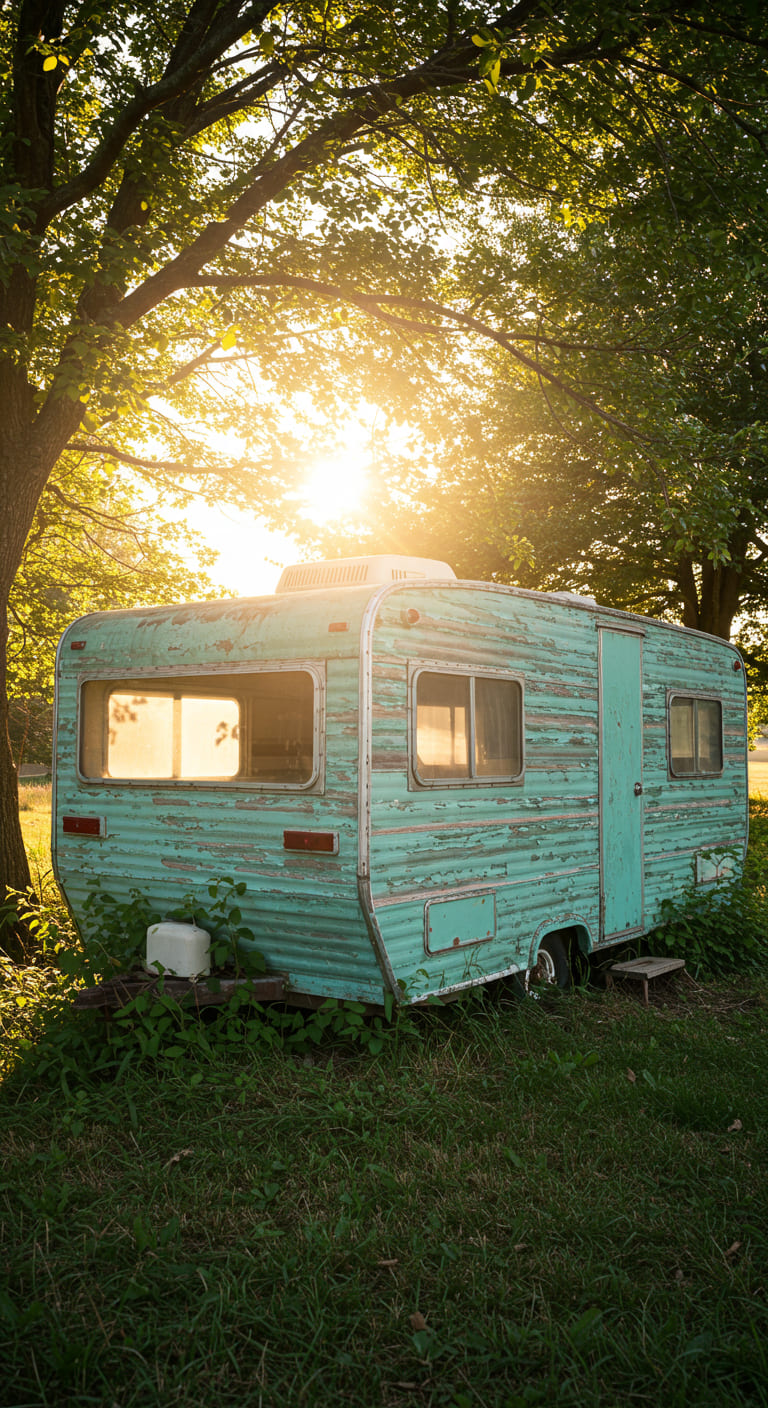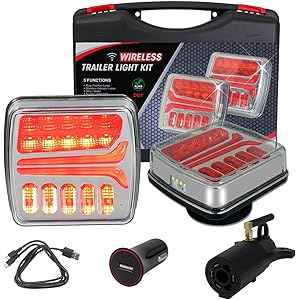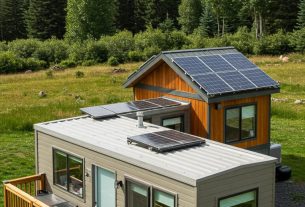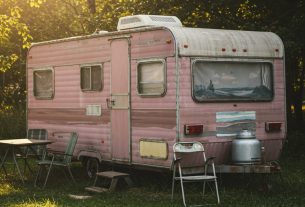As someone who has spent considerable time contemplating the stigma surrounding mobile homes, I feel compelled to share my insights on a topic that often evokes strong opinions. In a society that prides itself on diversity and inclusion, it’s perplexing to see that mobile homes frequently carry a negative connotation. This article aims to uncover the reasons behind this stigma, provide a balanced perspective, and encourage a more open conversation about mobile homes and their place in our communities.
The Origins of the Stigma
To understand why mobile homes are looked down upon, it’s essential to explore the historical context. The mobile home industry began in the post-World War II era, providing affordable housing to a nation grappling with a housing shortage. However, this noble intention has been overshadowed by several factors over the decades:
- Quality Concerns: Early mobile homes were often poorly built, resulting in issues with durability and safety. These quality concerns have contributed significantly to the negative perception of mobile homes.
- Socioeconomic Factors: Many mobile home residents are from lower-income brackets, leading to stereotypes that equate mobile homes with poverty and a lack of ambition.
- Community Perception: Mobile home parks are sometimes viewed as undesirable neighborhoods, further stigmatizing their residents.
These factors have created a narrative that unfairly paints mobile homes as inferior housing options. However, it’s crucial to recognize that not all mobile homes are created equal, and many modern versions offer comfort and style that rival traditional homes.
The Reality of Mobile Homes Today
In recent years, the mobile home industry has undergone significant transformations. The introduction of manufactured homes, which are built to higher standards, has changed perceptions and provided more options for people seeking affordable housing. I’ve come across some fascinating statistics that emphasize this shift:
- According to the U.S. Census Bureau, about 22 million Americans live in mobile homes, which account for nearly 6% of all housing in the United States.
- The average cost of a mobile home is significantly lower than that of a traditional home, making homeownership accessible to many who might otherwise be priced out of the market.
- Modern mobile homes can be energy-efficient and customizable, offering features like open floor plans and modern appliances.
This evolution in the mobile home sector suggests that it’s time to reassess our perceptions. It’s not just about the structure; it’s about the lifestyle and opportunities that mobile homes can provide.
Breaking Down the Stereotypes
As I delve deeper into the conversation surrounding mobile homes, I realize that many stereotypes persist, often based on misinformation or outdated perceptions. Let’s break down some of these stereotypes:
- Mobile Homes are Unsafe: While older models may have safety issues, current regulations and standards ensure that modern mobile homes are built to be safe and secure.
- Mobile Home Residents are Lazy: This stereotype overlooks the fact that many mobile home residents work hard and contribute positively to their communities.
- Mobile Homes Decrease Property Values: Research shows that well-maintained mobile homes can hold their value, especially in desirable locations.
By challenging these stereotypes, we can foster a more inclusive dialogue about mobile homes and the people who choose to live in them.
Case Studies: Success Stories in Mobile Home Living
To illustrate the positive aspects of mobile home living, I’d like to share a few case studies that highlight successful mobile home communities:
1. The Green Mobile Home Community
Located in Oregon, this community focuses on sustainability and eco-friendly living. Residents participate in community gardens, share resources, and promote environmental awareness. The community has not only thrived but has also gained recognition for its innovative approach to mobile home living.
2. The Family-Friendly Park
A mobile home park in Florida has created a welcoming environment for families, offering amenities like playgrounds and community events. This park has seen a surge in interest, proving that mobile home living can be a vibrant and fulfilling lifestyle choice.
3. The Affordable Housing Initiative
In response to the housing crisis, a city in California launched an initiative to develop new mobile home parks with affordable housing options. This effort has successfully provided homes for many low-income families, changing the narrative around mobile home living.
Understanding the Economic Impact
Beyond individual stories, it’s vital to consider the broader economic implications of mobile homes. Here are some key points to ponder:
- A Solution to the Housing Crisis: With rising housing prices, mobile homes offer a viable solution for affordable housing, especially in urban areas where traditional homes are out of reach.
- Job Creation: The mobile home industry contributes significantly to job creation, from manufacturing to sales and community management.
- Tax Revenue: Mobile home communities generate tax revenue for local governments, which can be reinvested into community services and infrastructure.
These economic factors demonstrate that mobile homes are not just an individual housing option; they play a crucial role in the larger economic landscape.
The Role of Media and Pop Culture
Media representation significantly influences public perception. Unfortunately, mobile homes often receive negative portrayals in films and television, reinforcing stereotypes. I recall a few movies that depict mobile home residents in a derogatory light, which only serves to perpetuate misunderstandings. Conversely, there are also positive representations that highlight the charm and community spirit found in mobile home living.
As consumers of media, we should critically assess these portrayals and advocate for more balanced representations that showcase the diversity and vibrancy of mobile home communities.
Addressing the Challenges Faced by Mobile Home Residents
While there are many positives to mobile home living, it’s essential to acknowledge the challenges that residents often face:
- Lack of Legal Protections: Mobile home residents may have limited legal protections compared to traditional homeowners, making them vulnerable to unfair practices.
- Community Stigma: The stigma surrounding mobile homes can affect residents’ mental health and sense of belonging.
- Maintenance Issues: Many mobile home parks struggle with maintenance and management issues, impacting residents’ quality of life.
By raising awareness of these challenges, we can work towards solutions that promote equity and support for all housing types.
What Can We Do to Change the Narrative?
As I reflect on the current state of mobile home living, I believe it’s crucial to take action to change the narrative. Here are some steps we can all take:
- Educate Ourselves: Seek out accurate information about mobile homes and their residents. This knowledge can help dispel myths and foster understanding.
- Support Local Initiatives: Get involved in community efforts that promote affordable housing and support mobile home residents.
- Advocate for Change: Encourage local governments to implement policies that protect mobile home residents and improve living conditions.
Every small action can contribute to a larger movement towards acceptance and respect for mobile home living.
Conclusion: Join the Conversation
In conclusion, the stigma surrounding mobile homes is a complex issue rooted in historical, societal, and economic factors. However, as we’ve explored, many of these perceptions are outdated and unfair. By fostering understanding, advocating for change, and celebrating the positive aspects of mobile home living, we can work together to create a more inclusive society.
I invite you to join the conversation. Share your thoughts, experiences, or questions about mobile homes in the comments below. Together, we can help change the narrative and promote acceptance for all types of housing.
FAQ
Are mobile homes safe to live in?
Yes, modern mobile homes are built to rigorous safety standards. However, it’s important to choose reputable manufacturers and maintain the home properly.
Do mobile homes appreciate in value?
While they may not appreciate at the same rate as traditional homes, well-maintained mobile homes can hold their value, particularly in desirable locations.
What are the common misconceptions about mobile homes?
Common misconceptions include beliefs that mobile homes are unsafe, associated with poverty, and negatively impact property values. These stereotypes often stem from outdated information.
If you found this article insightful, I encourage you to sign up for our newsletter for more content like this. Share it with friends and on social media to help spread awareness and foster a more inclusive dialogue about mobile homes.
NeaLia Magnetic Wireless Trailer Lights, Rechargeable LED Trailer Light for Towing Truck, Waterproof Tail Tow Lights Kit for RV Camper Boat Caravan, Portable Turn Signal Brake Running Stop
$65.99 (as of November 16, 2025 07:53 GMT -03:00 - More infoProduct prices and availability are accurate as of the date/time indicated and are subject to change. Any price and availability information displayed on [relevant Amazon Site(s), as applicable] at the time of purchase will apply to the purchase of this product.)
Sign up for our newsletter and stay up to date with exclusive news
that can transform your routine!





